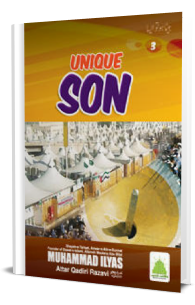
Tafsīr of the Noble Quran
Remembering Prophet Ibrahim عَـلَيْـهِ الـسَّـلاَم (part one)
Mufti Muhammad Qasim Attari
The Quran states:
وَ اذْکُرْ فِی الْکِتٰبِ اِبْرٰھِیْمَ ۬ؕ اِنَّہٗ کَانَ صِدِّیْقًا نَّبِیًّا (۴۱)
And remember Ibrāhīm in the Book. He was an exceedingly truthful prophet.[1]
Exegesis
Allah Almighty has instructed us to remember Sayyidunā Ibrāhīm عَـلَيْـهِ الـسَّـلاَم because he is a prophet, a messenger, and amongst the close bondsmen of Allah who are beloved to Him. One wisdom behind remembering those who are accepted in the court of Allah is to acknowledge the favour of our creator. It is a blessing from Allah upon someone if He has granted them a good reputation and fame because of their good deeds. Allah places the love of that individual in the hearts of people, and they speak of such a person. Another wisdom in remembering those beloved to Allah is that by virtue of this, one can encourage people to follow in their footsteps and perform virtuous deeds; following such people leads to success. Sayyidunā Ibrāhīm عَـلَيْـهِ الـسَّـلاَم is amongst such esteemed figures who had perfect faith. Acting upon the command of Allah, let us remember this great prophet in light of the Quran.
A true believer has many attributes, which are clear to those who have knowledge of the Quran and Hadith. Examples include possessing unblemished faith; having complete belief in the oneness of Allah; having love for Allah; establishing the truth and eradicating falsehood; calling people to Allah; facing hardships; devoting one’s life, wealth and family to our Creator; having steadfastness; turning to Allah; being patient, grateful and tolerant; and showing compassion towards creation. Sayyidunā Ibrāhīm عَـلَيْـهِ الـسَّـلاَم epitomised these traits.
Perfect faith
Allah states:
اِنَّہٗ مِنْ عِبَادِنَا الْمُؤْمِنِیْنَ (۱۱۱)
He is from Our people who have the highest level of perfect faith.[2]
Firm belief in the oneness of Allah
The nation of Ibrāhīm عَـلَيْـهِ الـسَّـلاَم not only worshipped idols, but they also worshipped the stars, moon and sun. Upon witnessing how they worshipped the creation of Allah, Prophet Ibrāhīm عَـلَيْـهِ الـسَّـلاَم openly announced his belief in the oneness of Allah and disassociated himself from all that which his people associated as partners to Allah. The Quran states:
فَلَمَّا جَنَّ عَلَیْہِ الَّیْلُ رَاٰ کَوْکَبًا ۚ قَالَ ھٰذَا رَبِّیْ ۚ فَلَمَّاۤ اَفَلَ قَالَ لَاۤ اُحِبُّ الْاٰفِلِیْنَ (۷۶) فَلَمَّا رَاَ الْقَمَرَ بَازِغًا قَالَ ھٰذَا رَبِّیْ ۚ فَلَمَّاۤ اَفَلَ قَالَ لَئِنْ لَّمْ یَہْدِنِیْ رَبِّیْ لَاَکُوْنَنَّ مِنَ الْقَوْمِ الضَّآلِّیْنَ (۷۷) فَلَمَّا رَاَ الشَّمْسَ بَازِغَۃً قَالَ ھٰذَا رَبِّیْ ھٰذَاۤ اَکْبَرُ ۚ فَلَمَّاۤ اَفَلَتْ قَالَ یٰقَوْمِ اِنِّیْ بَرِیْٓءٌ مِّمَّا تُشْرِکُوْنَ (۷۸)
Then, when the night spread darkness upon him, he saw a star and said: “Do you consider this to be my Lord?” Then, when it disappeared, he said: “I do not like those that set.”
Then when he saw the luminous moon, He said: “Do you call this my Lord?” When it became concealed, He said: “Had my Lord not guided me, then I would certainly be among the misguided.”
Then, when he saw the shining sun, he said: “Do you call this my Lord? This is greater (than all of them).” Then, when it set, he said: “O my nation! I am free from those that you ascribe as partners ˹to Allah˺.”[3]
Establishing the truth and eradicating falsehood
The nation of Ibrāhīm عَـلَيْـهِ الـسَّـلاَم were polytheists and idol worshippers. They were utterly infatuated with the idols. Illustrating his complete faith in Allah and not showing any regard for facing all sorts of criticism, he fearlessly: i) affirmed the oneness of Allah, and ii) exposed the falsehood of the idols. It is stated in the Quran:
وَ اِذْ قَالَ اِبْرٰھِیْمُ لِاَبِیْہِ وَ قَوْمِہٖۤ اِنَّنِیْ بَرَآءٌ مِّمَّا تَعْبُدُوْنَ (ۙ۲۶) اِلَّا الَّذِیْ فَطَرَنِیْ فَاِنَّہٗ سَیَہْدِیْنِ (۲۷)
And when Ibrāhīm said to his father (uncle) and his nation, “Indeed I am free from that which you worship.
Except He who created me, so indeed He will soon guide me.”[4]
Prophet Ibrahim عَـلَيْـهِ الـسَّـلاَم also said:
اِنِّیْ وَجَّہْتُ وَجْہِیَ لِلَّذِیْ فَطَرَ السَّمٰوٰتِ وَ الْاَرْضَ حَنِیْفًا وَّ مَاۤ اَنَا مِنَ الْمُشْرِکِیْنَ (ۚ۷۹)
I have turned my face, refraining from all falsehood, to the one Who created the heavens and the earth, and I am not of the polytheists.[5]
Call to Allah
One particular act that Sayyidunā Ibrāhīm عَـلَيْـهِ الـسَّـلاَم devoted himself to throughout his entire life was inviting his polytheistic nation and the people of faith to Allah. To this end, he preached to his people in different ways. The Quran states:
اِذْ قَالَ لِاَبِیْہِ وَ قَوْمِہٖ مَا تَعْبُدُوْنَ (۷۰) قَالُوْا نَعْبُدُ اَصْنَامًا فَنَظَلُّ لَہَا عٰکِفِیْنَ (۷۱)قَالَ ھَلْ یَسْمَعُوْنَکُمْ اِذْ تَدْعُوْنَ (ۙ۷۲) اَوْ یَنْفَعُوْنَکُمْ اَوْ یَضُرُّوْنَ (۷۳)
When he said to his father (uncle) and his nation, “What do you worship?”
They said, “We worship idols, then we remain before them in devotion.”
He said, “Do they hear you when you call upon them?
Or do they benefit you or harm you?”[6]
Then, he described the majesty of his Lord, which is mentioned in the Quran as follows:
قَالَ اَفَرَءَیْتُمْ مَّا کُنْتُمْ تَعْبُدُوْنَ (ۙ۷۵) اَنْتُمْ وَ اٰبَآؤُکُمُ الْاَقْدَمُوْنَ (۷۶)ۖ فَاِنَّہُمْ عَدُوٌّ لِّیْۤ اِلَّا رَبَّ الْعٰلَمِیْنَ (ۙ۷۷) الَّذِیْ خَلَقَنِیْ فَہُوَ یَہْدِیْنِ (ۙ۷۸) وَ الَّذِیْ ہُوَ یُطْعِمُنِیْ وَ یَسْقِیْنِ (ۙ۷۹) وَ اِذَا مَرِضْتُ فَہُوَ یَشْفِیْنِ (ۙ۸۰) وَ الَّذِیْ یُمِیْتُنِیْ ثُمَّ یُحْیِیْنِ (ۙ۸۱)
He (Ibrāhīm) said, “Have you thought about what you worship, you and your forefathers? They ˹all˺ are my enemies, except the Lord of all the worlds, Who created me and guides me; Who feeds me and gives me to drink; when I fall ill, He heals me; Who will cause me to die and will then resurrect me;”[7]
Sayyidunā Ibrāhīm عَـلَيْـهِ الـسَّـلاَم invited Nimrūd to monotheism with great wisdom by highlighting the power of Allah. The Quran states:
قَالَ اِبْرٰھٖمُ فَاِنَّ اللّٰہَ یَاْتِیْ بِالشَّمْسِ مِنَ الْمَشْرِقِ فَاْتِ بِہَا مِنَ الْمَغْرِبِ فَبُہِتَ الَّذِیْ کَفَرَ ؕ وَ اللّٰہُ لَا یَہْدِی الْقَوْمَ الظّٰلِمِیْنَ (۲۵۸)ۚ
Ibrāhīm said, “Allah brings out the sun from the east, so bring it out from the west.” So, he who disbelieved was dumbfounded ˹by the argument˺—and Allah does not guide the oppressors.[8]
[1] Al-Quran, part 16, Sūrah Maryam, verse 41, translation from Kanz al-ʿIrfān
[2] Al-Quran, part 23, Sūrah al-Ṣāffāt, verse 111, translation from Kanz al-ʿIrfān
[3] Al-Quran, part 7, Sūrah al-AnꜤām, verses 76 to 78, translation from Kanz al-ʿIrfān
[4] Al-Quran, part 25, Sūrah al-Zukhruf, verses 26 to 27, translation from Kanz al-ʿIrfān
[5] Al-Quran, part 7, Sūrah al-AnꜤām, verse 79, translation from Kanz al-ʿIrfān
[6] Al-Quran, part 19, Sūrah al-ShuꜤarāˈ, verses 70 to 73, translation from Kanz al-ʿIrfān
[7] Al-Quran, part 19, Sūrah al-ShuꜤarāˈ, verses 75 to 81 translation from Kanz al-ʿIrfān
[8] Al-Quran, part 258, Sūrah al-Baqarah, verses 3, translation from Kanz al-ʿIrfān

















Comments